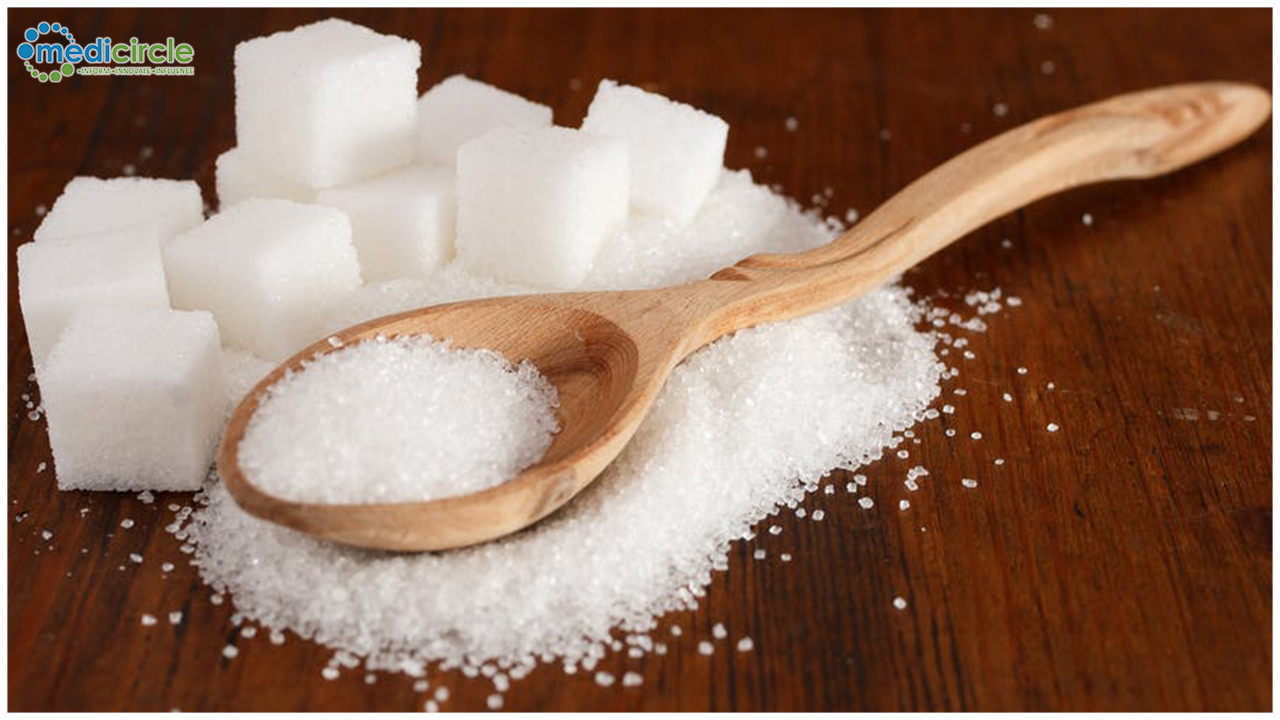A new study from the MRC London Institute of Medical Sciences, in the UK, reports that while eating nourishments wealthy in sugar doesn't make you fat, they can make you exceptionally debilitated. They do this by expanding the degree of a compound called uric corrosive in the blood. The investigation is distributed in the diary Cell Metabolism in March 2020.
It is entrenched that eating an excessive amount of sugar is certainly not a shrewd activity, as it builds the danger of early passing. Over the top sugar, utilization pushes up the odds of building up a metabolic issue, including diabetes mellitus and heftiness. It pushes down the future by quite a long while.
The inquiry that inspired the present examination was whether this decrease in life range was because of the debilitation of metabolic capacities or some different components.
The investigation
The investigation was completed in organic product flies took care of an eating regimen wealthy in sugar. True to form, the organic product flies had a shorter life expectancy than those on a solid eating regimen.
Once more, true to form from human examinations, the flies demonstrated numerous highlights of metabolic sickness, for example, weight, and insulin opposition, as indicated by specialist Helena Cocheme. These conditions are not able to be inducers of early demise in people. The common end was that unexpected passing in natural product flies with abundant sugar in their weight control plans was the result of the improvement of these conditions.
The present examination proposes something else. The scientists focused on recognizing the job of water, sugar, and salt in the advancement of high death rates in the flies.
Sugar is a substance that causes serious drying out, much the same as salt. Diabetes and pre-diabetic high sugar levels are motioned by expanded thirst.
To battle this issue in flies with a high-sugar diet, the analysts furnished them with more water to drink on the off chance that they needed. Cocheme uncovers the result: "Water is indispensable for our wellbeing, yet its significance is frequently ignored in metabolic investigations. Along these lines, we were amazed that flies took care of a high-sugar diet didn't show a diminished life expectancy, basically by giving them an additional wellspring of water to drink. Out of the blue, we found that these flies despite everything showed the ordinary metabolic imperfections related to high dietary sugar."
As such, even though the high sugar substance of the eating routine despite everything achieved the normal metabolic uneven characters, it didn't cause prior death if the flies had more water to drink.
High sugar, lack of hydration, and high uric corrosive
Considering this finding, the group at that point took a gander at the fly's renal framework in more noteworthy detail. They found that when the flies were taken care of with an excessive amount of sugar, their bodies developed a particle called uric corrosive. This crystalline corrosive is produced from the procedure, which brings about the breakdown of purines, which are one of the two kinds of nitrogen base mixes associated with building DNA.
Uric corrosive is the finished result of purine digestion. This substance can frame gems if its fixation is excessively high. Such precious stone arrangement in the fly's renal framework can offer ascent to renal calculi or kidney stones. In people, as well, uric corrosive aggregation is a prime reason for certain sorts of kidney stones, just as of provocative joint pain called gout. It is known to increment in fixation with age and may anticipate the improvement of diabetes and other metabolic conditions.
Then again, weakening the uric corrosive substance of the blood by giving more water when required was a powerful method for forestalling the arrangement of kidney stones. Another approach to keep these stones from shaping was to give the flies a medication that would hinder the uric corrosive blend pathway.
This intercession significantly affected the endurance range of the fly, delaying the life expectancy although the eating regimen kept on being sugar-rich.
Suggestions
Lamentably, this doesn't give the green light for individuals to eat all the sugar they can hold as long as they likewise drink a lot of water. In Cocheme's adroit words, "The sugar-took care of flies may live longer when we give them access to water, however, they are as yet undesirable."
Also, she brings up that corpulence is a prime hazard factor for coronary illness in people, however, the present investigation indicates that early passing in individuals who eat a lot of sugar isn't a direct result of weight. Rather, she says, "Our examination proposes that disturbance of the purine pathway is the constraining variable for endurance in high-sugar-took care of flies."
To all the more likely investigate how the sugar in the eating regimen affected human wellbeing, an equal collective examination in Germany took a gander at how sound volunteers were influenced by their eating routine. Co-specialist Christoph Kaleta reports, "Strikingly, much the same as flies, we found that dietary sugar consumption in people was related with more regrettable kidney work and higher purine levels in the blood."
Cocheme summarizes: "It will be intriguing to investigate how our outcomes from the fly mean people, and whether the purine pathway additionally adds to managing human endurance. There is generous proof that what we eat impacts our future and our hazard for age-related maladies. By concentrating on the purine pathway, our gathering plans to discover new helpful targets and procedures that advance solid maturing."

 A new study from the MRC London Institute of Medical Sciences, in the UK, reports that while eating foods rich in sugar does not necessarily make you fat, they can make you very sick.
A new study from the MRC London Institute of Medical Sciences, in the UK, reports that while eating foods rich in sugar does not necessarily make you fat, they can make you very sick.









.jpeg)

.jpeg)
.jpeg)
.jpeg)


.jpg)


.jpeg)
.jpeg)


.jpeg)
.jpg)




